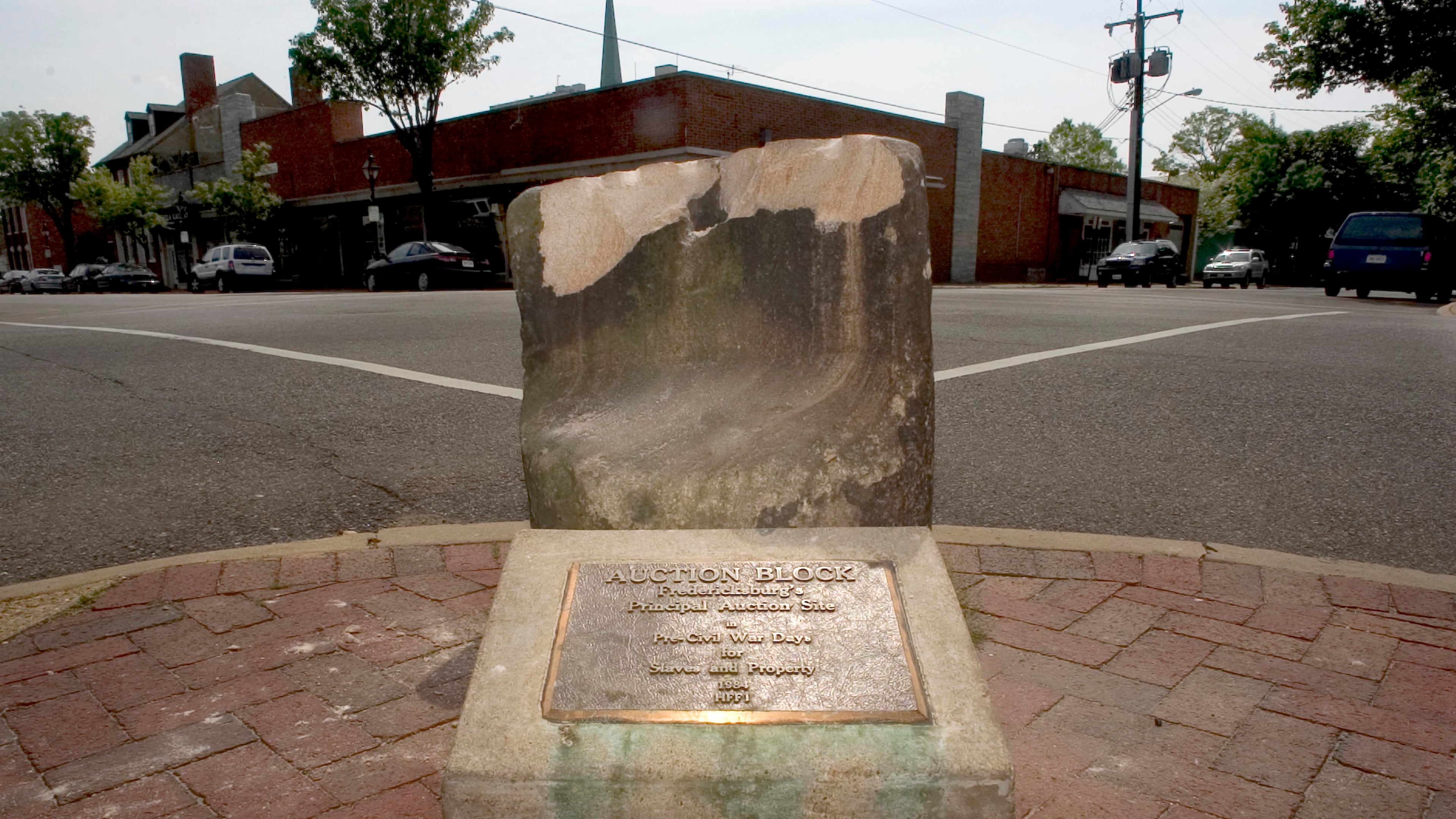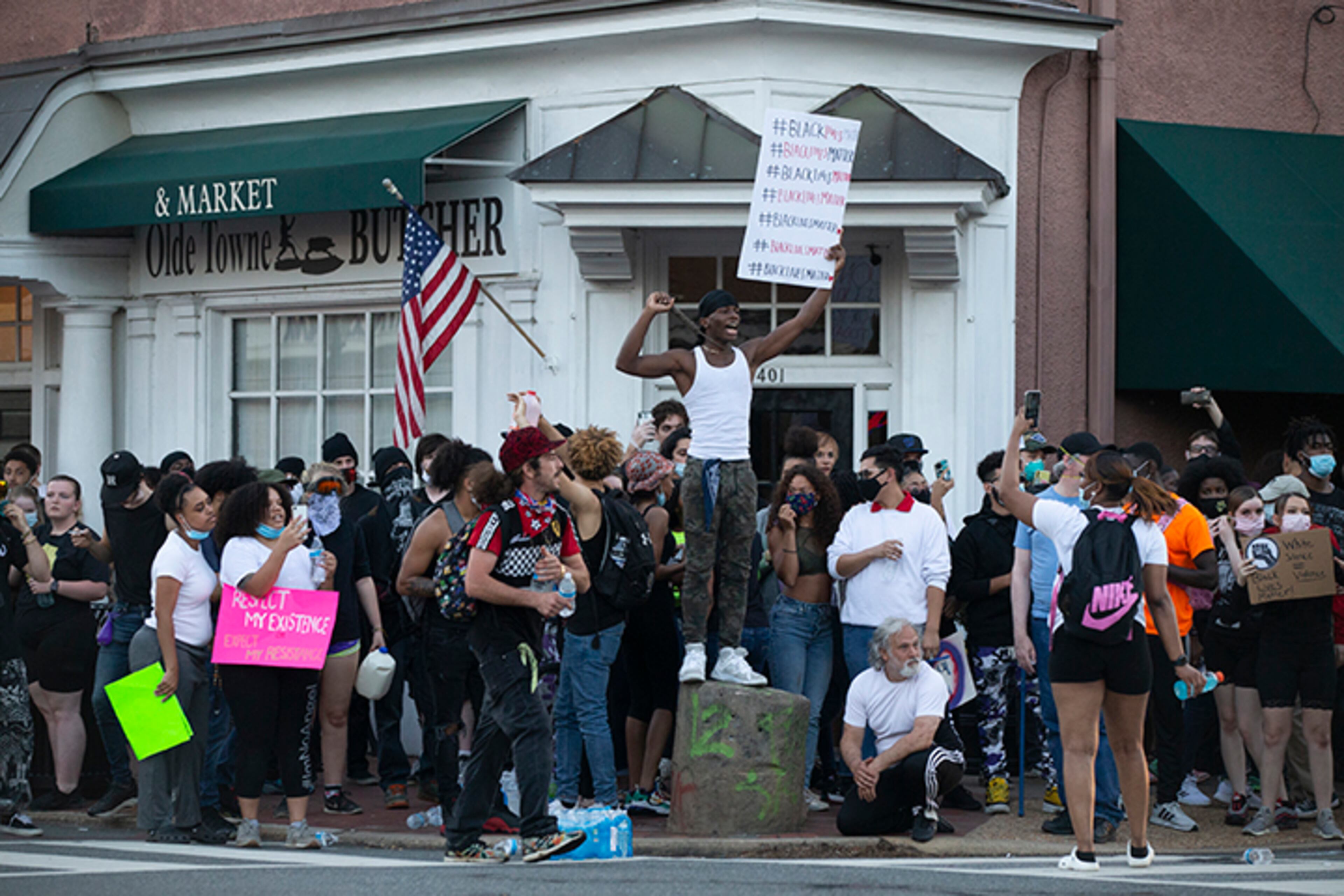176-year-old slave auction block removed from city amid protests

The city of Fredericksburg, Virginia, has removed an auction block from a popular downtown street corner that was used 176 years ago to buy and sell slaves.
The tattered-and-misshapen 800-pound stone, placed in the city's downtown district in 1844, was lifted from its base early Friday and hauled away after months of legal delays due to the coronavirus pandemic, according to the The Free Lance-Star.
Auction blocks were commonplace in the towns of colonial and early industrial America, when slavery was lucrative and a major driver of a fledgling economy.
In those days, it was legal for black slaves to be inspected and sold as property to the highest bidder. In the South, auctions were regularly held on courthouse steps and city halls; crowds would gather in town squares, and train stations, or on riverbanks to witness the transactions, according to The New York Times. In some cases, a quick sale on the side of the road would do.
The horrors of the slave trade and the continued public visibility of its relics are now fueling the widespread calls against systemic racism.
The controversial pre-Civil War-era monument at Charles and William streets in Fredericksburg has been listed on the National Register of Historic Places since September 1971.
An historical marker set at the base of the stone was dedicated in 1984, 140 years after the auction block was put there. Its message boldly proclaims: “AUCTION BLOCK Fredericksburg’s Principal Auction Site in Pre-Civil War Days for Slaves and Property.” The metal placard is inscribed with the acronym for the Historic Fredericksburg Foundation.
It was defaced with graffiti twice during protests that erupted last week over the death of George Floyd, city officials said.

During the unrest, Confederate statues and other monuments, widely viewed as painful symbols of a brutal past, have been vandalized and toppled in many cities across America. Another slave auction block was defaced in Sharpsburg, Maryland, according to The Associated Press.
In 2017, the Fredericksburg chapter of the NAACP pushed for the city to remove the slave block, calling it an open wound and a constant reminder of "a time of hatred and degradation" in the city's history.
Two years later, the City Council approved a plan to move the block from the street corner to the Fredericksburg Area Museum, which a judge upheld after two business owners in the area filed suit to stop the action.
One of them appealed the case to the Virginia Supreme Court.
The museum plans to feature the stone in a new exhibit heralding black people's rise from slavery, the Free Lance-Star reported.
Slavery ended in the United States in 1863.

